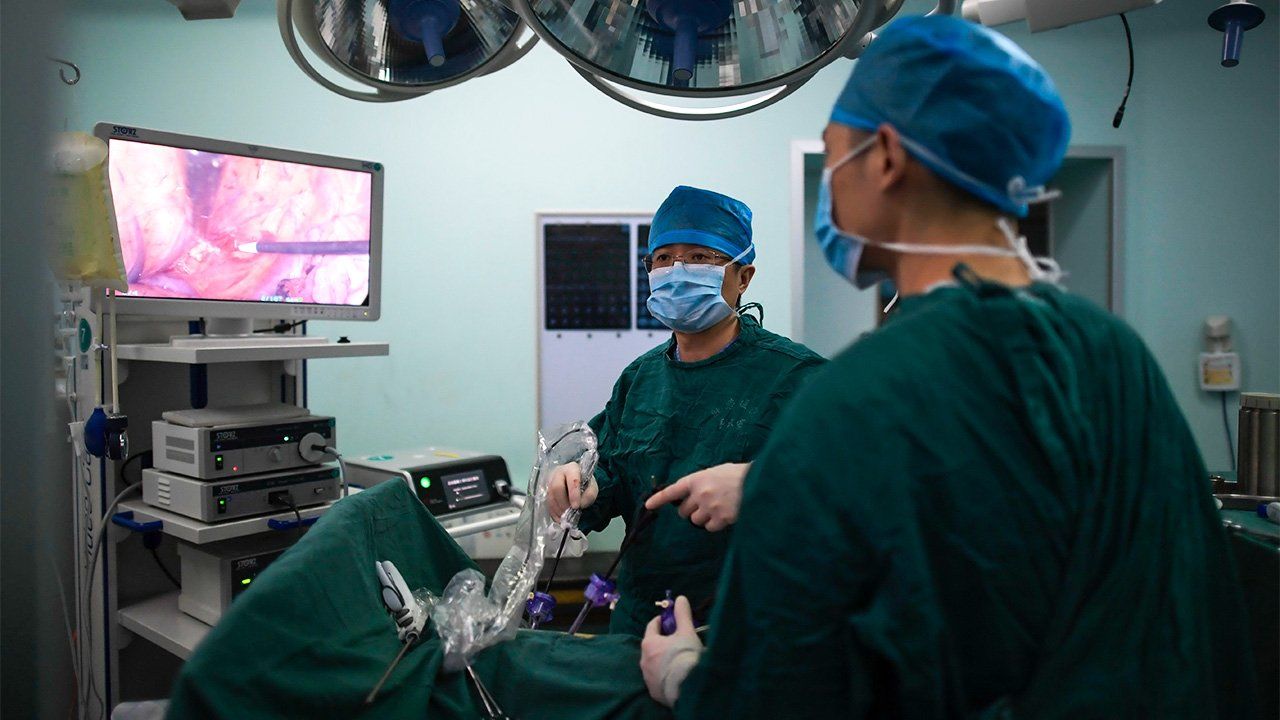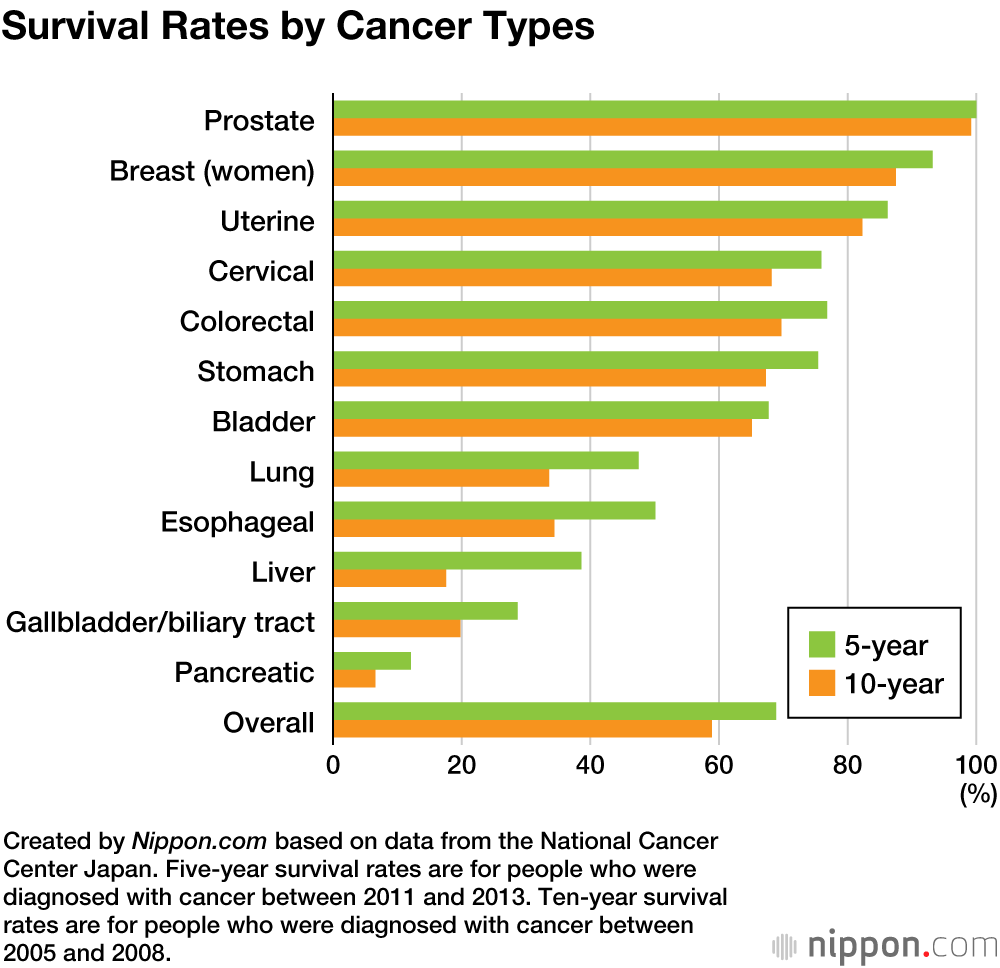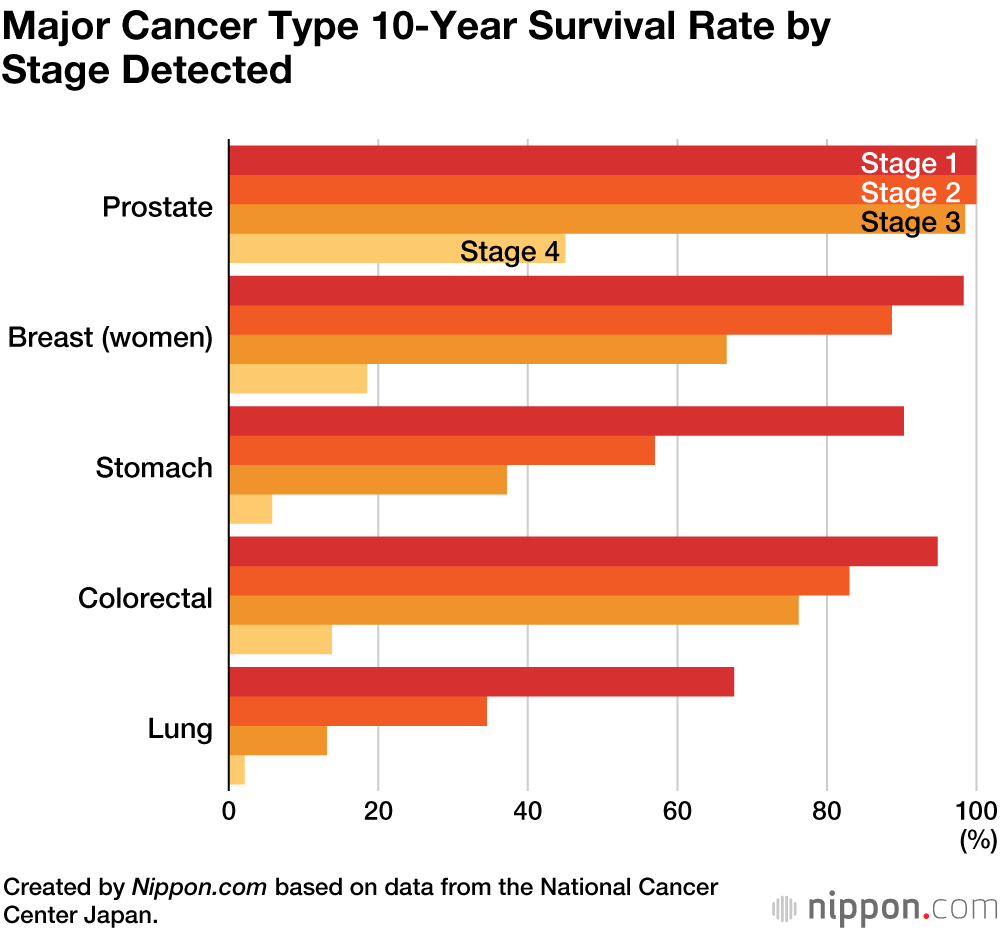
Japan’s 10-Year Cancer Survival Rate Increases to 58.9%
Society Health- English
- 日本語
- 简体字
- 繁體字
- Français
- Español
- العربية
- Русский
A study conducted by the National Cancer Center Japan and other institutions found that the 10-year survival rate for patients diagnosed with cancer between 2005 and 2008 was 58.9%. This is a 0.6 percentage point increase over the previous survey (for diagnoses between 2004 and 2007). The survival rate has been on an upward trend since 2016, when the first results of the regular study were released.
The study targeted 121,000 people who were diagnosed at 32 member institutions of the Japanese Association of Clinical Cancer Centers in 27 prefectures. Other causes of death apart from cancer were not included when calculating the survival rate.
Prostate cancer had the highest survival rate, at 99.2%, followed by female breast cancer at 87.5%, colorectal cancer at 69.7%, and stomach cancer at 67.3%. Pancreatic cancer had the lowest survival rate, at 6.6%.
Meanwhile, the overall 5-year survival rate for cancer among approximately 152,000 people diagnosed at the same 32 facilities between 2011 and 2013 was 68.9%, up 0.3 percentage point compared to the previous survey (for patients diagnosed between 2010 and 2012). The highest 5-year survival rate was 100% for prostate cancer, while the lowest was 12.1% for pancreatic cancer.
The 10-year survival rate by stage (with Stage 1 being the earliest stage) reveals the importance of early detection and early treatment. For example, the 10-year survival rate for Stage 4 gastric cancer is 5.8%, whereas for Stage 1 the rate is 90.3%.
(Translated from Japanese. Banner photo © Reuters.)

